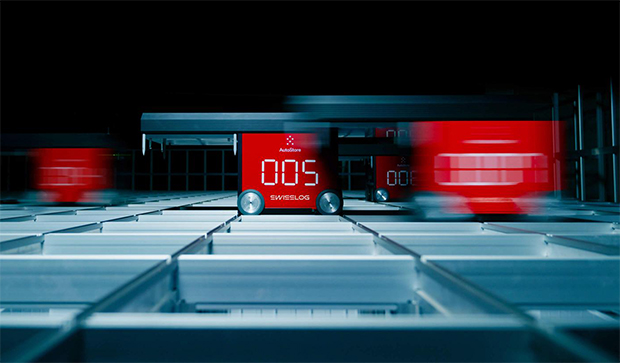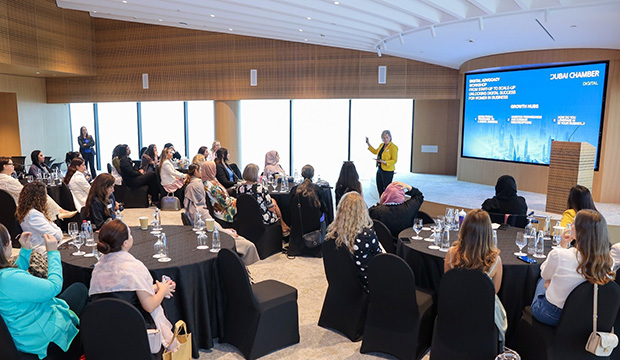Business and government leaders from the European Union and the GCC came together at the 6th EU-GCC Business Forum discussing how best to drive the post-pandemic recovery in the EU and the GCC towards a green and digital future. The event took place at the Residence Palace, Brussels, and included interactive panel discussions that covered different topics relating the overall theme of the Forum ‘People, Place, Prosperity: Rebuilding After the Pandemic’.
Opening the Forum, Mr. Valdis Dombrovskis, Executive Vice-President of the European Union said “The EU is fully committed to strengthening economic ties between our two regional blocs. By developing our areas of mutual interest, by working in a more collaborative way, we can achieve real benefits. We have great shared potential to build more resilient, sustainable and efficient economic models. Such transformations can deliver great advantages for our citizens, our businesses, and our natural environment.”.
Speakers from Europe and the GCC discussed the potential future business opportunities in sessions covering topics such as The New Concept of Industry 5.0 and the Evolution of the Fourth Industrial Revolution; Maximising Business Opportunities from the Green Deal and Circular Economy and Innovation; Digitalisation and Creativity – How Policy Makers Can Spur Innovation in the Digital Economy. A dedicated session was also held on Trade & Investment Opportunities with speakers discussing how to generate more trade through removing regulatory and other barriers.
“The possibilities are huge for more EU-GCC economic cooperation, trade and investment in an increasingly green and digitalised global economy. We should tap on the full potential of this emerging new dimension of cooperation between our regions. I am sure that today’s impressive EU-GCC Business Forum will contribute to this objective in a significant and tangible way” said Mr. Leopoldo Rubinacci, Deputy Director General, Directorate-General for Trade, European Commission.
Dr. Abdel Aziz Abu-Hamad Aluwaisheg, Assistant Secretary-General for Political Affairs and Negotiations at the Gulf Cooperation Council said in his opening speech, “The relationship between the EU and the GCC has significantly grown over the past 35 years, and in May this year, the EU announced the joint communication to the European Parliament and the Council with the Gulf, stressing further the importance of this relationship. Despite difficult circumstances, GCC economies have done very well in 2022, passing a major milestone in their history. For the first time, their combined GDP exceeded $2 trillion, making the GCC the 9th largest economy worldwide. Saudi Arabia’s GDP alone is above $1 trillion.
While the overall picture is optimistic, even uplifting, there are many challenges ahead, especially the risk of global recession, which means that both policy makers and business leaders need to double their efforts to avoid local recessions or reduce their effects.”
Overall, the business forum highlighted various opportunities for future enhancement of trade and investment between the two regions including,
- The Panel on People discussed how the transition from Industry 4.0 to Industry 5.0 has a direct impact on how we will work and live. Industry 5.0‘s focus on social and environmental sustainability & its human-centredness has transformational potential, also increases the complexity and risks associated with this transition which need to be properly managed towards a new growth paradigm. The EU and GCC can partner on exchanging educational and professional development approaches and lessons learned to prepare their workforce. The EU can share lessons learned with regards to social protection to secure stability in times of transition while creatively exploring new pathways with GCC partners.
- The Panel of Place discussed the way we live will further transform which requires new infrastructure, including physical spaces, but also for how we travel, communicate, and consume. The green and digital transitions will continue to open new pathways for leveraging a new growth paradigm –one which reconciles economic growth, social stability, and environmental protection. Innovation is the foundational mindset for the green and digital economy which needs to be fostered by both business and policy leaders.
- The Panel of Prosperity discussed how the pandemic has highlighted the need for greater resilience of the physical dimensions of the global economy. Increasing globalisation and localisation are two opposing forces which will influence economic activities in the near-to-medium future. Digital transformation has become further accelerated by the pandemic, which –amongst other factors -led to the emergence of Industry 5.0. Creativity –through its connection to innovation –will be a key dimension to ensure long-term prosperity in an increasingly complex world. Partnerships between the EU and GCC will be key to enhancing prosperity for both regions; information and experience exchange are thus essential moving forward to rebuilding after the pandemic.
- The Panel on Investment Facilitation discussed how both the EU and GCC have engaged in reform efforts to facilitate FDI. However, there is still untapped potential for both sides. New business models and products, as for example. those connected to the green and digital transition, have opened up new investment opportunities but also have highlighted a need for new standards as well as enhanced public scrutiny. Ongoing dialogue and action between the EU and the GCC need to be enhanced to foster investments and strategic partnerships both at a business and governmental level; on the latter there is a regular Trade and Investment Dialogue with the GCC which is being further enhanced. The planned establishment of an EU Chambers of Commerce in the GCC will facilitate the business-to-business level contacts.
About the EU-GCC Dialogue on Economic Diversification project
The EU-GCC Dialogue on Economic Diversification is a project funded by the European Commission Service for Foreign Policy Instruments.
The project contributes to stronger EU-GCC relations by supporting the GCC countries in the ongoing process of economic diversification away from hydrocarbon dependent sectors, including by funding regular EU-GCC Business Fora.
The purpose of this project is to promote climate-friendly trade, investment and economic affairs related policy analysis, dialogue and cooperation between stakeholders from EU and GCC at both regional and country levels in the context of the GCC economic diversification process.

























+ There are no comments
Add yours